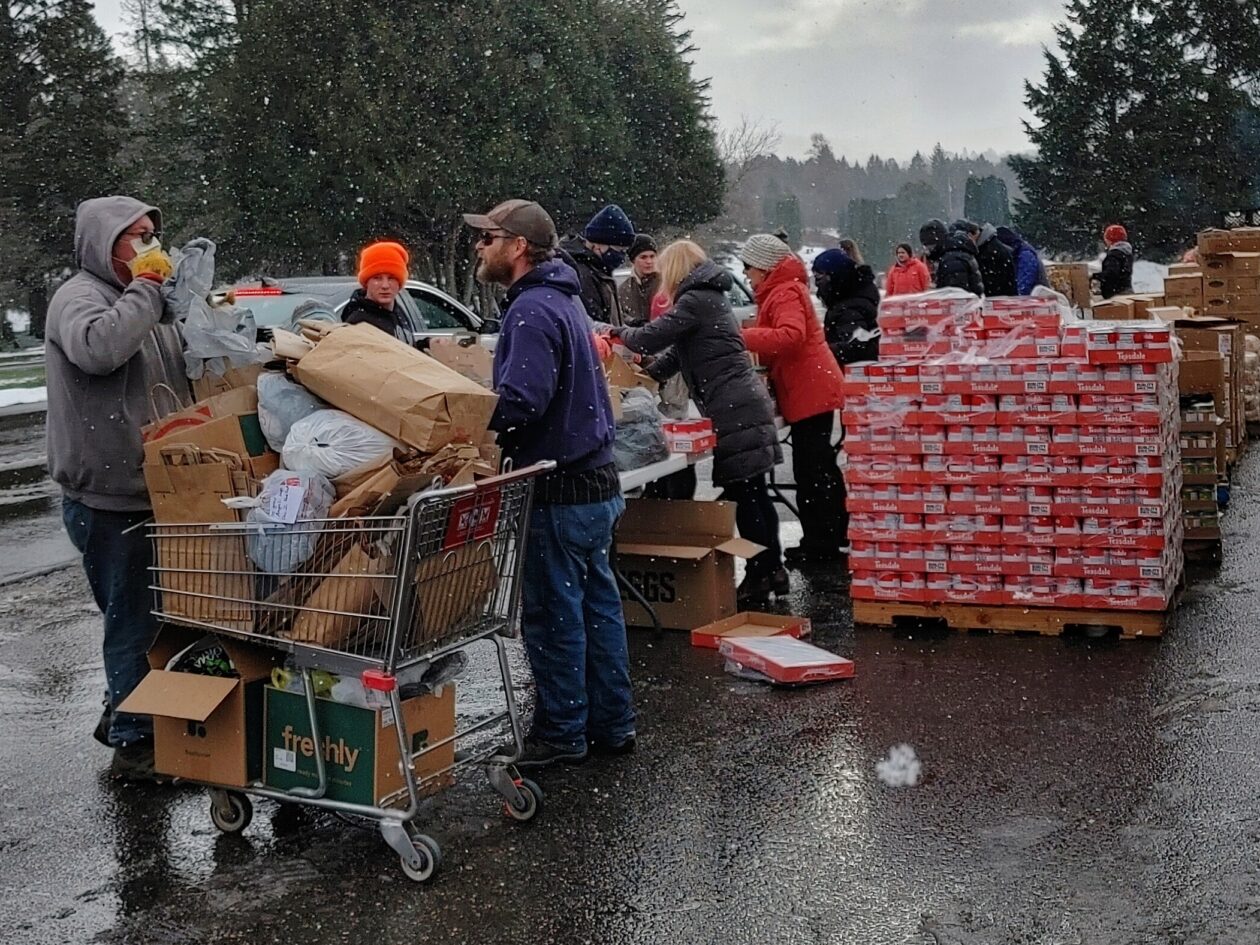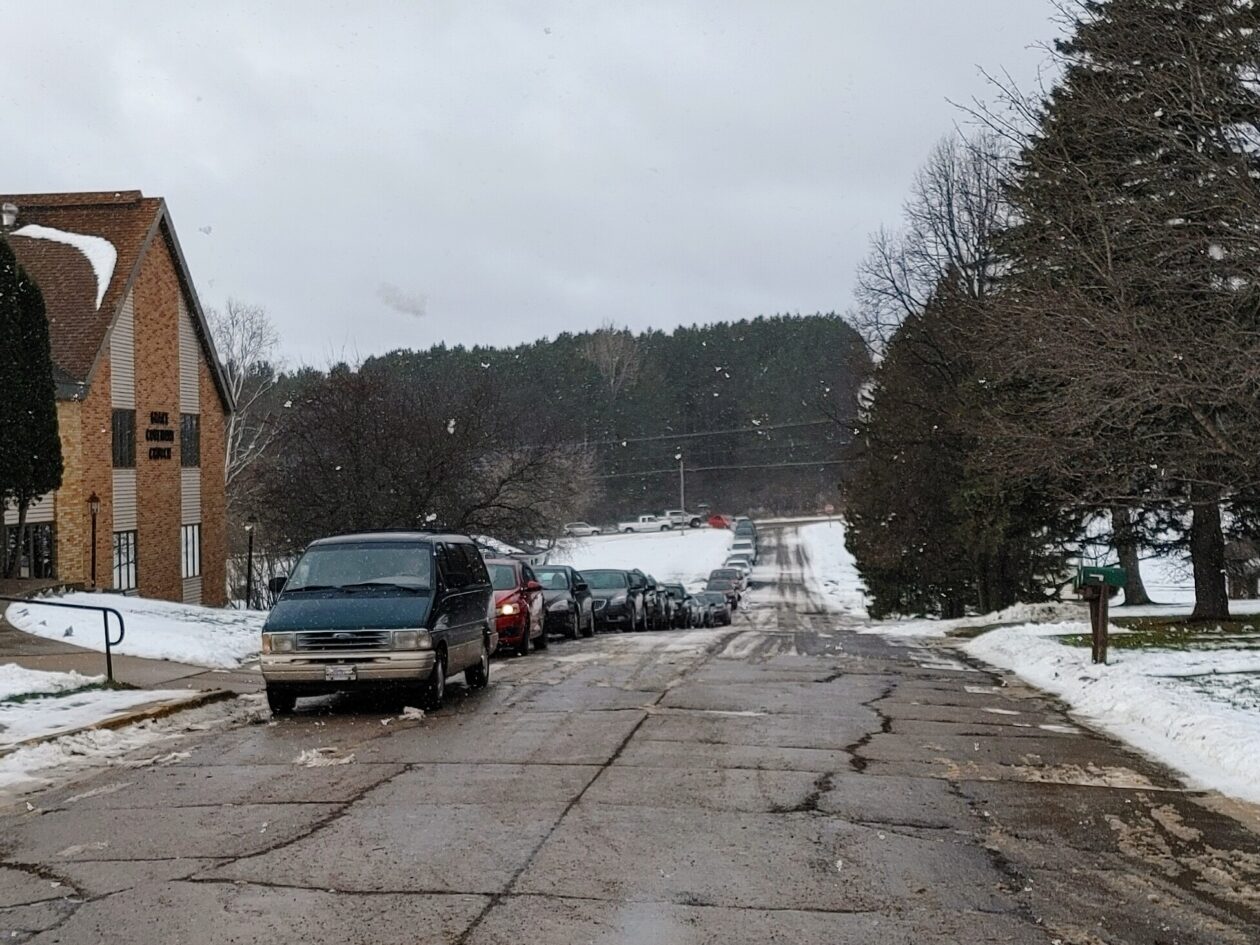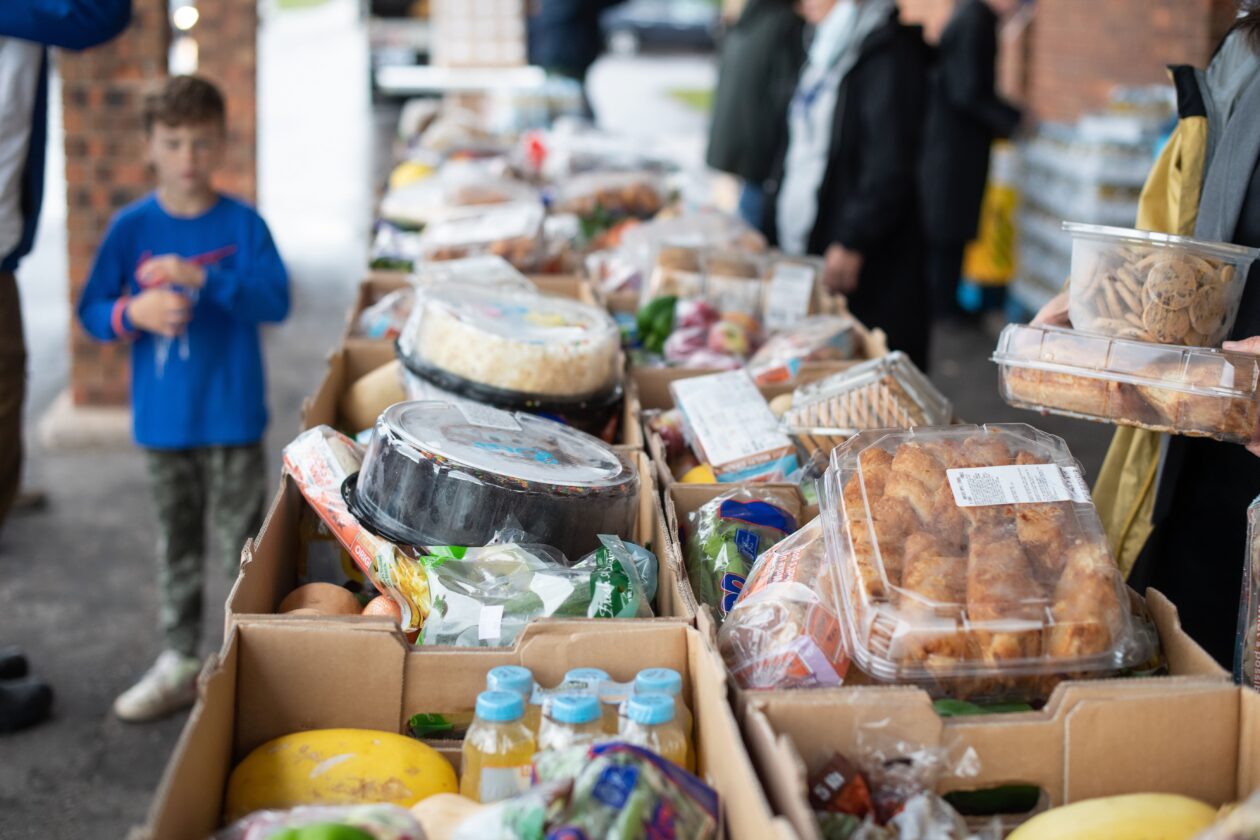Pastor Michael Poindexter realized how vast the need for food support is in his community when he saw the sheer number of neighbors lined up at an Iron River Mobile Pantry he volunteered at last year. After this experience, he urged his church, Grace Covenant, to get involved. Now, they partner with Feeding America West Michigan to serve their neighbors facing hunger through Mobile Pantries hosted at their church every quarter.
“What has surprised me most is people’s willingness to brave the weather to sit in line for hours ahead of start time,” he said.
In the last decade, Michael has watched the community in Iron River change.
“It’s an aging community where the industries that built it are either no longer in existence or significantly decreased,” he said. “Younger people who leave the area for higher education and employment often do not return.”
The community is home to many retired or disabled veterans, some of whom turn to charitable food resources, like Mobile Pantries, for support. At Grace Covenant’s January Mobile Pantry, 32 veterans received food.
A recent study by the United States Department of Agriculture – Economic Research Services (USDA ERS) found that working-age veterans have a 7.4 percent increased chance of being food insecure vs. non-veterans. And veterans who are disabled are 22.5 percent more likely to experience food insecurity than veterans who aren’t.
Military service increases the likelihood of poor health and disability, which in turn can increase medical expenses, financial hardship and the likelihood of becoming food insecure, according to the Center for Strategic and International Studies.
Having access to charitable food resources at familiar places, such as at a local church like Grace Covenant, not only helps neighbors access fresh produce and other food, but may help neighbors, especially veterans and seniors, have a less stigmatizing experience. No one should feel ashamed to sign up for hunger-relief programs, but veterans (like seniors) are statistically less likely to sign up for government hunger-relief programs, such as SNAP, perhaps because of increased feelings of stigma. According to a study by IMPAQ, only 30 percent of food insecure veterans lived in a household receiving SNAP, compared to more than 80 percent of the food insecure population generally.
According to Pastor Michael, “it’s important to help veterans because they are a significant part of the community.” By running the Mobile Pantries, he said, “it enables us to build a better connection with our community by allowing us to help meet a need.”
Even though volunteers are there to help their neighbors in need, Michael saw first-hand this willingness to help go the other way during January’s frigid temperatures.
“Some clients offered our volunteers, who were walking the line of cars to register clients, to sit in their vehicles to warm up,” he said.
Teri, a volunteer, has seen this neighborly spirit all her life growing up in Iron River. She’s loved her experience volunteering at the Mobile Pantries so far and wants to continue — “It’s definitely a positive thing for our community,” she said.
Like Michael, she’s seen the community change and industry leave over the years, but, she said, “I wouldn’t say we’re a dead-end community. There were a bunch of people during the pandemic who helped bring food to people. It’s a community that loves one another well.”
Whether you’re a veteran or anyone else who needs food, Feeding America West Michigan is here for you. Thanks to partnerships like this one with Grace Covenant, and the financial support of organizations like the Superior Health Foundation, we’re able to serve communities across West Michigan and the Upper Peninsula.
If you or someone you know is in need, click the “find food” button on our website to see what Mobile Pantries are happening near you.
Story written by Communication and Marketing Specialist, Juliana Ludema.



